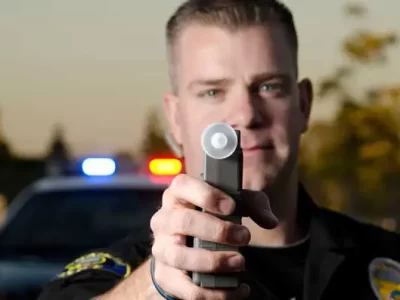Prior to the mid-1990s, DUI was essentially a traffic ticket. Frequently, officers released suspected drunk drivers with warnings. Even if the cases made it to court, they were relatively difficult to prove, and the penalties were rather light.
Things have changed a lot. In many jurisdictions, over half the probationers were convicted of DUI. Law enforcement agencies may face civil and other liability if their officers release suspected drunk drivers. These cases are easier to prove, especially if the defendant provides a chemical sample.
Finally, the laws are harsher, especially in Georgia. All DUI offenders serve a minimum twelve months’ probation, and there is also a mandatory jail term. DUI has some significant collateral consequences as well, such as higher auto insurance rates and repercussions in civil or family court.
The good news is that a Marietta criminal defense attorney has a number of legal options. Most DUI prosecutions have many moving parts, so there are more things that could go wrong. And, if an attorney creates reasonable doubt in one area, the defendant is not guilty as a matter of law. Frequently, these defenses have nothing to do with intoxication.
Not Driving the Vehicle
The “driving” element of a “driving under the influence” charge is quite broad in Georgia. State law provides that a person who is “in actual physical control of any moving vehicle” could be guilty of DUI. In other words, if the defendant is in the driver’s seat, has the keys, and the vehicle is operable, DUI charges normally hold up in court.
That’s usually true even if the defendant is passed out behind the wheel. Theoretically, these drivers could wake up, start their vehicles, and pose a threat to other people on the road.
Operability is often key in these situations. The state has the burden of proof to show that the car had gas and was in reasonably good mechanical shape. Frequently, prosecutors have little or no evidence on this point. A recent trip to a mechanic could be enough to create reasonable doubt.
This element is also difficult to prove in DUI-accident cases. Frequently, the defendant is no longer in the car by the time police arrive. So, an officer cannot testify that the defendant was “driving” while intoxicated. Another witness must provide this testimony, and frequently, there is no one else who can “wheel” the defendant.
Not in a Public Place
Large apartment complex and shopping mall parking lots often have street names and traffic control devices. However, these locations are not public places. Gated residential communities are in a grey area. So is the curbside adjacent to a private driveway.
On a related note, a DUI must be brought in the county where the offense occurred. Some communities along Interstate 75 and Interstate 285 are partially in Cobb County and partially in Fulton County. The same is true elsewhere.
Technically, if prosecutors bring charges in the wrong county, they can dismiss the existing case and file a new one. However, rather than go through all that paperwork, many prosecutors would rather offer a favorable plea deal.
No Reasonable Suspicion for the Stop
Legally, reasonable suspicion is essentially an evidence-based hunch. The basis for the stop frequently has nothing to do with drunk driving. Most officers pull over DUI suspects for speeding, making an illegal turn, or violating another portion of the traffic code. These stops are legal.
Sometimes, however, officers become overanxious. That’s especially true if the officer was on DUI patrol. Furtive movements, such as quick glances into the rearview mirror, are suspicious. However, they do not constitute reasonable suspicion.
Other times, officers relay on informer’s tips. Unless they are very specific (e.g. “a blue SUV with a Georgia license plate ending in XYZ heading south on Main Street”) and the informer gives a name, the tip is inherently unreliable. A tip like a “dark-colored SUV” could refer to half the vehicles on the road. And, if an informer is not willing to vouch for the tip, there’s no reason for a Cobb County judge to give it greater weight.
No Probable Cause for the Test
Before they demand chemical samples, officers must have probable cause to believe the defendant was intoxicated. This standard of proof is higher than reasonable suspicion. Generally, if the defendant does poorly on the Field Sobriety Tests, that’s enough for probable cause. The three approved FSTs are:
- One-leg stand,
- Horizontal gaze nystagmus, and
- Walk and turn (walking a straight line).
These tests are quite subjective. If the defendant’s performance is less than perfect, the officer usually claims the defendant “failed” the test.
Sometimes, however, FST evidence is unavailable. The Fifth Amendment gives defendants the right to refuse to perform these tests. If that is the case, the state must normally rely on circumstantial evidence to establish probable cause. Such evidence includes:
- Erratic driving,
- Bloodshot eyes,
- Slurred speech,
- Unsteady balance, and
- Admissions of alcohol consumption.
This evidence usually suffices for reasonable suspicion of criminal activity. But at best, this evidence only establishes consumption.
The aforementioned DUI patrols sometimes comes into play here as well. Troubled publishing heiress Patty Hearst once said that if you go looking for trouble, you will normally find it. Likewise, if officers are looking for DUI suspects, they normally find them, even if there is little evidence to support their suspicions.
Additionally, some officers skip the Field Sobriety Tests and arrest motorists once they admit they have been drinking. Alternatively, some officers only perform unapproved FSTs, such a Romberg’s balance test (standing still with eyes closed, arms extended, and head back). These tests have no scientific foundation.
DUI is one of the most common cases in Cobb County and one of the hardest ones to prove in court. For a free consultation with an experienced criminal defense attorney in Marietta, contact The Phillips Law Firm, LLC. Convenient payment plans are available.



 Are DUI Checkpoints Always Legal?
Are DUI Checkpoints Always Legal?